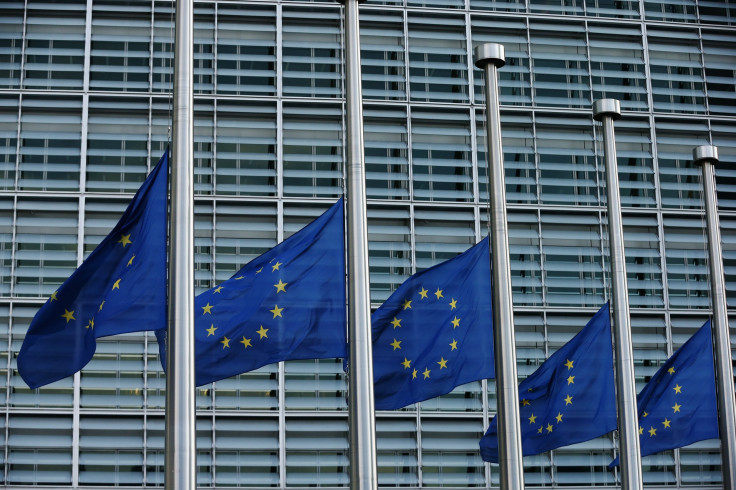Brussels Attacks: Political Backlash Could Derail Europe’s Shaky Economic Recovery

The deadly explosions that rocked the Brussels airport and a subway station near major European Union institutions Tuesday morning can be expected to immediately effect stock markets, tourism and other economic activity in Europe. The direct economic impact may be short-lived, however, an outcome for which today’s Europe has plenty of recent evidence.
But if the attacks feed the backlash against immigration in Europe, their effects could run far deeper, affecting debates on visa-free travel, refugees and Britain’s membership in the European Union.
“The real effects will be in the politics, but the extent of those will surely depend on how fast they can catch the key people, and on the risk of further attacks,” said Erik Nielsen, chief economist at UniCredit.
Shares in travel- and tourism-related companies tumbled Tuesday, with airlines such as Air France-KLM and the parent company of British Airways leading the trend. Shares in hotelier Accor also fell, as did the operator of the Eurotunnel connecting Britain and France. Insurers that will be on the hook for damages from the attacks also saw shares fall.
“The stock reaction is reflecting a cautious attitude from investors after the attack,’’ Pierre Mouton, a fund manager at Notz, Stucki & Cie. in Geneva, told Bloomberg News. “While it may put some investors off Europe because of the perception of increased geopolitical risk, I don’t see it as weighing long term on stocks, beyond the initial reaction.”
The aftermath of the Paris terror attacks in November provides some guide as to what the continent faces now that Brussels has felt the wrath of as-yet-unknown attackers. Peter Praet, a member of the European Central Bank’s executive board, said traumatic effects can hit confidence in Europe’s shaky economic recovery, but are not always decisive.
“Usually these sorts of events have a transitory effect on the economy, so this is not a priori a reason to change the way we see the evolution of the European economy,” Praet told Bloomberg Television. “It’s also true, on the other hand, that we have a fragile cyclical recovery, fragile with downside risk, and it’s clear these sort of events do not help restoring confidence in the recovery, so this is something we will watch.”
That will provide little solace to Belgium's small hoteliers, restaurant owners and other tourist-oriented businesses in the coming days. After the Paris attacks, police actions in the Brussels suburb of Molenbeek deflated business activity even without live attacks. On the following weekend, 40 percent of hotel bookings were canceled, Olivier Willocx, head of the Brussels Chamber of Commerce, told BBC News at the time.
Jack Kennedy, senior economist at research firm Markit, said after Paris that the Nov. 13 slaughter appeared to have dampened activity in the services sector, but that he still expected a modest increase in GDP for the fourth quarter of 2015. That prediction panned out, with a 0.2 percent increase over the previous three months.
The tougher call will be whether the Brussels attacks feed the backlash against Europe’s wide-open internal borders (the Schengen zone) and against taking in refugees from horrific Middle East conflicts. Between the Paris attacks and the flood of migrants, the signs are not terribly good at the moment, Mujtaba Rahman, practice head for Europe at the Eurasia Group, wrote in a note to clients.
“There is a growing perception among European public opinion that EU leaders are not in control of the continent’s terrorist threat, given this attack comes on the heels of events in Paris last year,” Rahman wrote. “Combined, these attacks will increase xenophobic and anti-immigration sentiment across the EU, which has already been rising in light of the EU’s ongoing refugee crisis.”
A concrete effect may be greater border checks in areas of “strategic concern,” Rahman wrote. The Schengen Agreement, which binds 26 countries, including Belgium, together in a zone free of border controls has come under great pressure as a result of the refugee crisis, and evidence that the open borders aided attackers in Brussels could prove a tipping point.
Even without that evidence, the events in Brussels are likely to feed the arguments of extremist parties across Europe that EU policies on refugees have been far too liberal.
British Prime Minister David Cameron, now waging the political battle of his life to keep his country in the European Union, has argued the country is safer within the community, another argument complicated by the Brussels attacks. Already on Tuesday, British critics of EU membership were using the Brussels attacks as an argument for abandoning the EU.
British voters will take up the question of EU membership in a referendum in June.
© Copyright IBTimes 2025. All rights reserved.





















